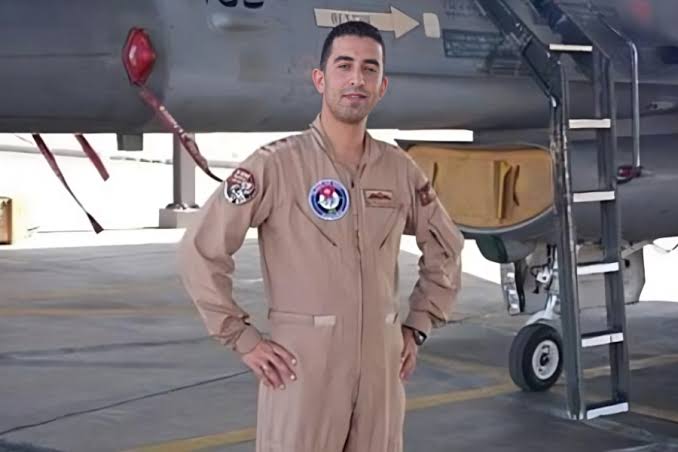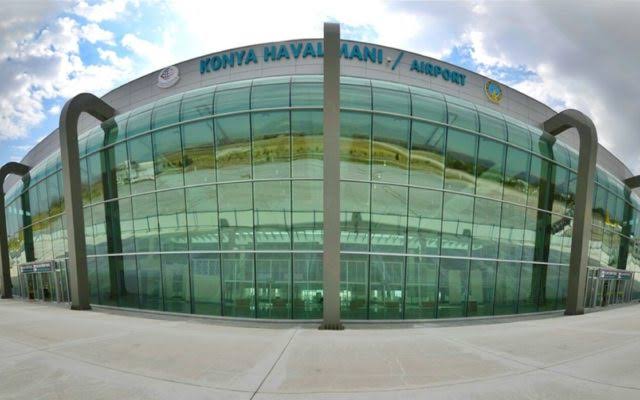Muʿādh Sāfī Yūsif al-Kasāsba, a Jordanian Air Force pilot, became a national hero and global symbol of resilience in the face of terror following his tragic death at the hands of ISIS in 2015. His life story, sacrifice, and the circumstances of his death sent shockwaves across the world, but his legacy endures as a reminder of the human cost of war and the courage it takes to combat extremism. Born on May 29, 1988, Muʿādh hailed from a deeply rooted Jordanian family in Karak, a city known for its tribal values and patriotism. His upbringing and passion for his country set the stage for his eventual role as a fighter pilot—a role that would intertwine with the broader struggle against the rise of ISIS in the Middle East.
Jordan, a key player in the international coalition against ISIS, was proud of its military, and Muʿādh was among the elite few chosen to defend his nation and the world from the growing threat posed by the terrorist organization. His dedication to service and his ultimate sacrifice left an indelible mark not only on his country but also on the international community. But beyond the headlines, Muʿādh’s story is one of personal ambition, a strong sense of duty, and the weight of a nation standing behind him in the wake of his loss.
Early Life and the Path to the Air Force
Muʿādh al-Kasāsba was born into a respected Jordanian family in the town of Karak, a historical location that carries significance dating back to the time of the Crusades. Karak, known for its ancient fortress, has been a place where stories of valor and courage are not uncommon, and Muʿādh’s family was no stranger to this legacy. The Kasāsba family, part of the large Bedouin tribes in southern Jordan, had a long-standing history of service to the nation, especially in the military.
From a young age, Muʿādh exhibited a fascination with aviation and a desire to serve his country. This passion led him to enroll at the King Hussein Air College, a prestigious institution for training elite Jordanian pilots. There, Muʿādh distinguished himself as a dedicated and skilled student. His remarkable academic performance and commitment to his training led him to graduate as a fighter pilot in 2009. His mastery of flying F-16 jets made him an important asset to the Royal Jordanian Air Force, particularly as tensions in the region escalated due to the rise of ISIS.
Muʿādh’s choice to join the air force wasn’t just a career decision—it was a calling. Jordan, a small but strategic country in the Middle East, was surrounded by conflict on multiple fronts, and the Royal Jordanian Air Force played a crucial role in securing the nation’s borders and contributing to regional stability. By becoming a pilot, Muʿādh positioned himself on the front lines of this effort, and his skills and dedication would soon be tested in one of the most dangerous conflicts of his time.
The Role of Jordan in the Fight Against ISIS
Jordan was among the key members of the international coalition formed to combat ISIS in the wake of the group’s rapid expansion across Syria and Iraq in 2014. ISIS, or the Islamic State of Iraq and Syria, had gained global infamy for its brutal tactics, public executions, and the establishment of a so-called caliphate that disregarded borders and international law. For Jordan, the threat of ISIS was not only ideological but also physical, as the group’s proximity to Jordan’s borders posed a direct threat to its security.
Muʿādh al-Kasāsba, along with other Jordanian pilots, was deployed to conduct airstrikes against ISIS targets in Syria as part of Operation Inherent Resolve, a U.S.-led campaign aimed at degrading and ultimately defeating ISIS. These missions were not only critical in halting the group’s advance but also symbolized Jordan’s commitment to the international fight against terrorism. The pilots, including Muʿādh, understood the dangers they faced with every mission, but their resolve to protect their homeland and contribute to global peace kept them in the skies.
On December 24, 2014, Muʿādh embarked on what would be his final mission. Flying over Raqqa, Syria—then considered the heart of ISIS territory—his plane was shot down by a missile. After ejecting from his aircraft, he was captured by ISIS militants. His capture marked the beginning of a tragic ordeal that would culminate in one of the most horrific acts of violence by the group.
Capture and Execution: A Nation in Mourning
The capture of Muʿādh al-Kasāsba was met with immediate concern, both in Jordan and internationally. ISIS, notorious for using hostages as leverage, released a series of demands, including the exchange of prisoners, in return for Muʿādh’s release. Jordan, known for its policy of not negotiating with terrorists, faced an intense dilemma as public outcry for Muʿādh’s safe return grew louder.
However, on February 3, 2015, ISIS released a video showing the execution of Muʿādh in the most barbaric manner imaginable. The video depicted Muʿādh being burned alive inside a cage, a gruesome act intended to send a message of terror to the world. The execution of a Jordanian pilot—a symbol of national pride—was not only an attack on one individual but an assault on the entire nation of Jordan.
The Jordanian response was swift and resolute. King Abdullah II, deeply moved by Muʿādh’s death, vowed to avenge his brutal killing. In the days following the release of the video, Jordan significantly escalated its military operations against ISIS, launching numerous airstrikes that targeted the group’s key positions. King Abdullah himself famously donned a military uniform in solidarity with his troops, and the country united in mourning and defiance.
Muʿādh’s death also prompted widespread condemnation from the international community, with leaders around the world expressing their shock and revulsion at ISIS’s actions. His execution was a turning point in the fight against ISIS, galvanizing international efforts to intensify the campaign to eradicate the terrorist group.
The Legacy of Muʿādh Sāfī Yūsif al-Kasāsba
Muʿādh al-Kasāsba’s sacrifice left a profound impact on Jordanian society and the world. In Jordan, he became a national martyr, and his name is now synonymous with courage and sacrifice in the fight against terror. Schools, streets, and public institutions have been named in his honor, ensuring that his memory will be preserved for generations to come. His family, particularly his father, has taken an active role in speaking about Muʿādh’s legacy and the need for unity in the face of extremism.
Internationally, Muʿādh’s death served as a stark reminder of the inhumanity of ISIS and the critical need to continue the global effort against terrorism. His sacrifice, while tragic, reinforced the resolve of the coalition forces to dismantle ISIS and restore stability to the region. The video of his execution, meant to instill fear, instead galvanized millions to reject the ideology of terror and stand with Jordan in the fight against ISIS.
His legacy also extends beyond the military and political spheres. Muʿādh’s story is a testament to the personal sacrifices made by soldiers and their families in the fight for peace and security. His death highlighted the human cost of war and the personal stories behind the headlines, reminding the world that the fight against extremism is not just about geopolitics, but about people—individuals like Muʿādh who put their lives on the line for the greater good.
Conclusion
Muʿādh Sāfī Yūsif al-Kasāsba was more than just a pilot; he was a symbol of Jordanian resilience and a hero whose story continues to inspire people worldwide. His life, marked by bravery and dedication to his nation, ended in tragedy, but his memory serves as a beacon of hope and a reminder of the importance of standing up against tyranny and terror. His sacrifice was not in vain, as it helped to strengthen the resolve of his country and the world in the ongoing fight against extremism. As we remember Muʿādh, we honor not only his life but also the values he stood for—courage, sacrifice, and the unwavering commitment to justice.



